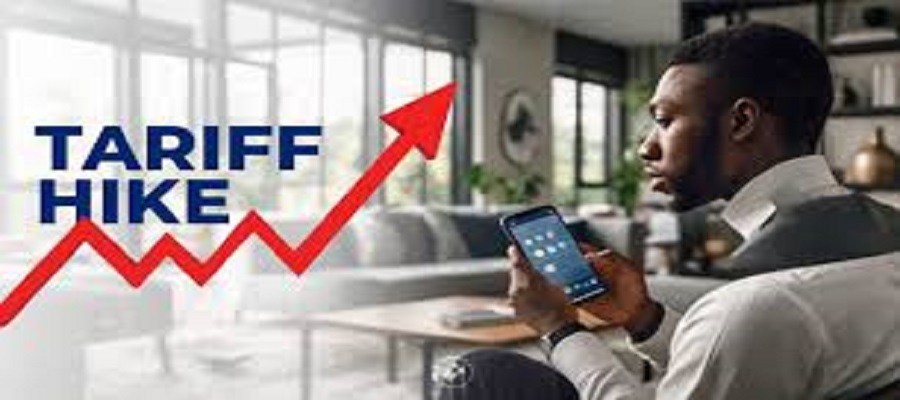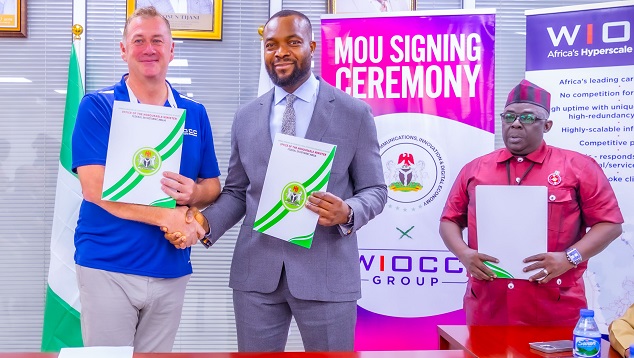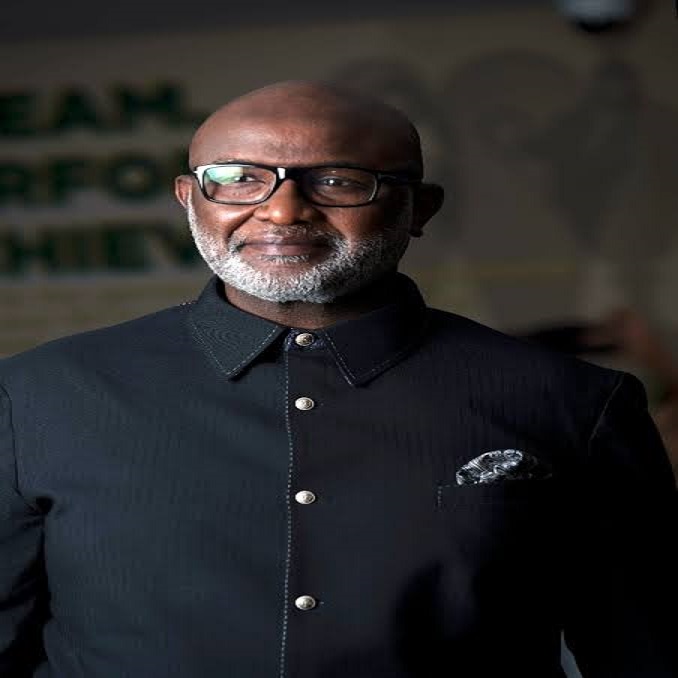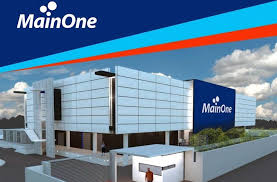Telecom
Strides Ahead: How 5G will Become the New Frontier of Sports

Kevin Murphy
Sports fans are a passionate breed and whether they’re at the match or on their couches, they demand the full experience. For fans, and athletes alike, leading technologies enrich the sporting experience, bringing people closer to the action, and creating new immersive ways to showcase the commitment, excitement, and teamwork of sports.

The COVID-19 pandemic has led to a growth in digital experiences which may become permanent. The increase in virtual events is raising the bar for the quality and design of the experience, with audiences becoming increasingly sophisticated, demanding a more social, innovative and engaging event.
To transform the digital experience for fans, players and support staff alike, three main types of support is required: a sports performance information system; a digital experience backend system; and technology consulting and innovation services.
The combination of 5G, Augmented Reality (AR) and Virtual Reality (VR) supports completely new user experiences in sports – pushing boundaries and taking the consumer to the heart of the game itself. For a team playing before a packed stadium or a lonesome runner on a forest track, connectivity and mobility enable new values in an emerging internet of sport.
This is where 5G can be a vital tool for the sports sector, as it seeks to re-invent the fan experience at home and at the sports arena. Sporting events could better serve both the traveling fan attending every game in person and the die-hard fan catching the game remotely.
In this age of digital and mobile consumption, fans expect an experience boosted by their mobile devices. Through live-streaming video, mixed reality experiences and real-time access to information about the game, the next generation in mobile wireless technology can create an enhanced experience, reinventing how fans participate in sports.
Immersive Sporting Experiences at Home
Sports fans today are looking for new ways to connect to the sporting experience digitally. There is potential to create more immersive fan experiences with the introduction of 360-degree cameras, virtual and augmented reality. Fans can walk the sideline, see what the goalkeepers are seeing or join the victory celebration in the locker room – all serving the purpose of bringing fans closer to the action at the venue from home.
What’s more, the trend of increased solitary viewing due to the development of personal screens and on-demand viewing could be reversed thanks to the capabilities and promises of Virtual Reality (VR). It can provide a way to connect with friends watching the game at different physical locations, creating a “virtual hangout” for the times you can’t be there in person.
VR also brings an exciting prospect to the table: the ability to watch 4K/UHD content without owning a big physical screen and allowing on-demand viewing to become more of a social activity than it is today. Soon, friends and people with similar interests can watch content together in a VR living room, viewers will have the freedom to look anywhere in every scene of a movie and consumers can experience a football match with other fans in a VR arena, as if they are actually there.
And for sports fans in areas that don’t have access to fiber coverage, 5G enables fixed wireless access applications for very high-quality video streaming in 4K video, 360 or AR/VR formats.
This means that you get to watch the 4K video on your mobile device. But 5G is also so fast and so reliable that it will make fixed wireless a real challenger in the broadband market, streaming 4K video wirelessly to your big screen TV as well. And it’s not just the quality either. You’ll be able to choose what camera angles you like, or if you want information overlaid on the screen, or if you want to watch in VR or not.
Creating the Connected Stadium
A great experience at the arena is fundamental to enjoying live sports. Where fans today see broadband connectivity to their smartphone for social media posts as table stakes, there is so much more that could be done digitally to connect fans to the action. This is an area where 5G can improve the overall experience, compared to standard WIFI solutions.
5G can expand the experience for fans at the game, creating new possibilities by connecting sensors in balls, goals, and even players – all in real-time with extremely low latency. The next generation technology can deliver enough capacity to the stadium for fans to stream high-quality video and share the views from their seats with others at the same match.
Other future changes coming to the fan experience with 5G connectivity include the ability to experience matches from new vantage points, using phones to switch between different 360-degree, ultra-high definition virtual reality cameras filming all around the stadium.
The introduction of 5G at a stadium also creates a horizontal platform to serve additional applications. Fans would be able to monitor and track athletes’ performance during practice and competition in real time, for example. This represents a major opportunity for service providers to deliver enhanced networks in stadiums and arenas to ensure their subscribers are well connected.
Kevin Murphy is Vice President and Head of Ericsson Levant Countries and Global Customer Unit Ooredoo
Telecom
NLC Announces Nationwide Boycott over Telecom Hike

Nigeria Labour Congress (NLC), an umbrella group for trade unions, has announced that Nigerians are planning a statewide boycott of telecom services in protest of the Nigerian Communications Commission’s (NCC) recent approval of a 50% increase in phone costs.

Following carriers’ demands for cost-reflective charges amid challenging economic conditions, the NCC approved a 50% increase in telephone tariffs on Monday.
This hike, which fell short of the 100 percent increase that telcos requested, caused the average cost of calls to go from N11 to N16.5 per minute, the cost of 1GB of data to go from N287.5/GB to N431.25, and the price of SMS to go from N4 to N6.
“The adjustment, capped at a maximum of 50 percent of current tariffs, though lower than the over 100 percent requested by some network operators, was arrived at taking into account ongoing industry reforms that will positively influence sustainability,” the commission said.
In a statement issued , Joe Ajaero, president, NLC, denounced the tariff increase, calling it an unfair burden on those who are already facing financial difficulties.
He voiced concerns about the hike’s timing, pointing out that it comes while inflation and purchasing power are on the rise.
He said, “This decision, coming at a time when Nigerian workers and the masses are grappling with unprecedented economic hardship, is a clear assault on their welfare and an abandonment of the people to corporate fat cats.
“Telecommunication services are essential for daily communication, work, and access to information. Yet, an average Nigerian worker already spends approximately 10 percent of their wages on telecom charges.
“For a worker earning the current minimum wage of N70,000, this means an increase from N7,000 to a staggering N10,500 per month, or 15 percent of his salary—an unsustainable cost.
“NLC is not opposed to a tariff review but disagrees with the approved rate of increase. We therefore call on the government, the NCC, and the National Assembly to stop the implementation of this ill-advised hike to allow a reasonable conversation around it.
“If the dialogue agrees on the need for the hike, then we can all seek a more humane increase and definitely not this 50 percent hike,” he stated.
The NCC added that rate adjustments were made to close the gap between current tariffs and growing operating costs without compromising service delivery to customers.
Telcos had complained that a 300 percent increase in operational costs was forcing them to shut down.
Telecom
FG, WIOCC Sign $10M MoU to Connect 3 million Homes with Broadband Fibre Connectivity

WIOCC Group, a provider of digital infrastructure and connectivity solutions, is pleased to announce a strategic partnership with the Federal Ministry of Communications Innovation & Digital Economy (FMCIDE) of Nigeria.

This collaboration aims to accelerate the development of Nigeria’s digital economy through substantial investments in critical digital infrastructure and comprehensive stakeholder engagement.
The partnership, formalized through a Memorandum of Understanding (MoU), marks a significant milestone in the efforts to enhance digital connectivity and inclusion across Nigeria. Represented by the Honourable Minister, Dr. ‘Bosun Tijani, and WIOCC Group’s Chief Development Officer, Mr. Darren Bedford, the agreement outlines a shared vision for fostering technical efficiency and collective prosperity.
The partnership focuses on enhancing stakeholder engagement by jointly reviewing and improving the National Policy on Telecommunications to meet digital economy needs. WIOCC Group commits to investing in Nigeria’s digital infrastructure, deploying a hyperscale open-access digital platform for internet service providers (ISPs) with advanced fibre and colocation facilities.
Additionally, through this partnership, the collaboration with the Nigerian Broadband Alliance for Nigeria aims to improve broadband quality and accessibility, with WIOCC expanding fibre infrastructure and partnering with ISPs to connect more homes and businesses. The partnership also includes WIOCC providing digital infrastructure training and supporting job creation for Nigerian youth.
Commenting on the partnership, WIOCC Group’s Chief Business Development Officer, Mr. Darren Bedford said, “The MoU with the Ministry of Communications underscores our commitment to supporting Nigeria’s digital transformation, by working together, we aim to create a robust digital ecosystem that benefits all stakeholders and drives sustainable economic growth”.
Dr ‘Bosun Tijani stated that “This collaboration with WIOCC Group represents a significant step forward in our commitment to ensuring that Nigerians have access to reliable and high-quality telecommunications services. We are committed to building a resilient digital infrastructure that fosters innovation, inclusion, and economic growth.
“Working with the private sector to deliver last-mile connectivity to homes and businesses, amongst other key benefits, is essential to achieving this vision, and we are excited about the opportunities this collaboration creates for empowering communities across Nigeria”.
Telecom
QNET Champions Education Accessibility with QLearn on International Day of Education 2025

QNET, a global leader in lifestyle and wellness-focused direct selling, celebrates the UNESCO International Day of Education 2025 by advancing educational access for learners of all ages through its innovative e-learning platform, QLearn.

This year’s theme, “AI and Education: Preserving Human Agency in an Automated World,” highlights the critical role of education in empowering individuals to thrive in an AI-driven future.
According to the World Economic Forum’s Future of Jobs Report 2025, technological advancements and the green economy are projected to create a net gain of 78 million jobs globally by 2030.
However, the report also emphasizes the need for education reform and reskilling to address the skills gap generated by AI advancements and to prepare individuals for an evolving, automated job market.
In response to these global shifts, QNET’s QLearn platform offers accessible, high-quality e-learning solutions, covering everything from professional development to K-12 education.
These courses are designed to help individuals acquire the knowledge and skills necessary to excel in a rapidly changing world
Biram Fall, QNET’s Regional General Manager for Sub-Saharan Africa, shared his thoughts on the International Day of Education: “In today’s fast-evolving technological landscape, education is more important than ever.
“As AI reshapes industries, fostering adaptability through innovative learning is crucial. Through QLearn, QNET is committed to providing quality education and empowering individuals to shape their futures.”
Beyond QLearn, QNET is actively engaged in global educational initiatives, such as FinGreen, its financial literacy program, and strategic partnerships with organizations like the Lagos Food Bank Initiative (LFBI) in Nigeria.
Together with the LFBI, QNET has provided nutritious meals to over 1,000 underserved students under the EDUFOOD program, helping reduce absenteeism and improve academic performance.
QNET continues to play a significant role in global efforts to position education as a pillar of sustainability and equity.
By leveraging digital tools and the transformative potential of AI, QNET is working to bridge educational gaps and empower communities to thrive.

 Telecom12 hours ago
Telecom12 hours agoSamsung Galaxy S25 Series: Redefining Smartphones with Advanced AI Integration

 Telecom12 hours ago
Telecom12 hours agoMTN’s New Year Campaign: Inspiring Change, One Move at a Time

 General News17 hours ago
General News17 hours agoFG Plans Aircraft Manufacturing in Nigeria

 General News12 hours ago
General News12 hours agoCBN’s FX Code to Boost Transparency for Launch on January 28

 Telecom17 hours ago
Telecom17 hours agoFCCPC Insists Telcos’s Tariff Hike must Translate to Improved Services

 Telecom12 hours ago
Telecom12 hours agoMainOne Boosts Connectivity for West African Businesses with Equiano Cable

 Telecom12 hours ago
Telecom12 hours agoFG, WIOCC Sign $10M MoU to Connect 3 million Homes with Broadband Fibre Connectivity

 Telecom11 hours ago
Telecom11 hours agoNLC Announces Nationwide Boycott over Telecom Hike

























